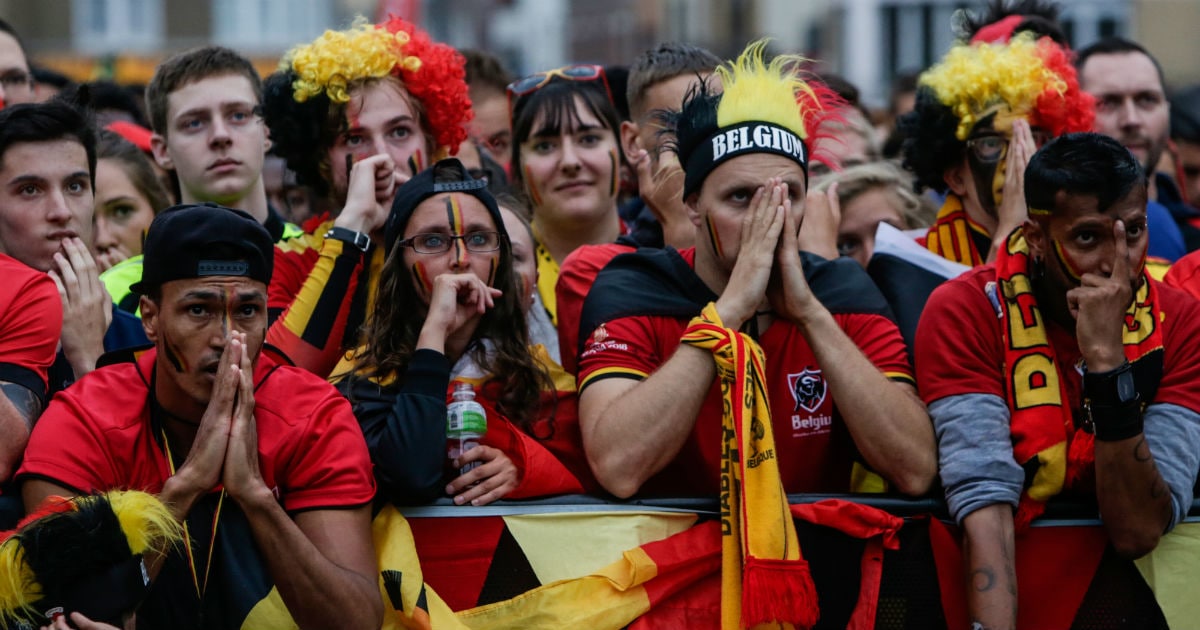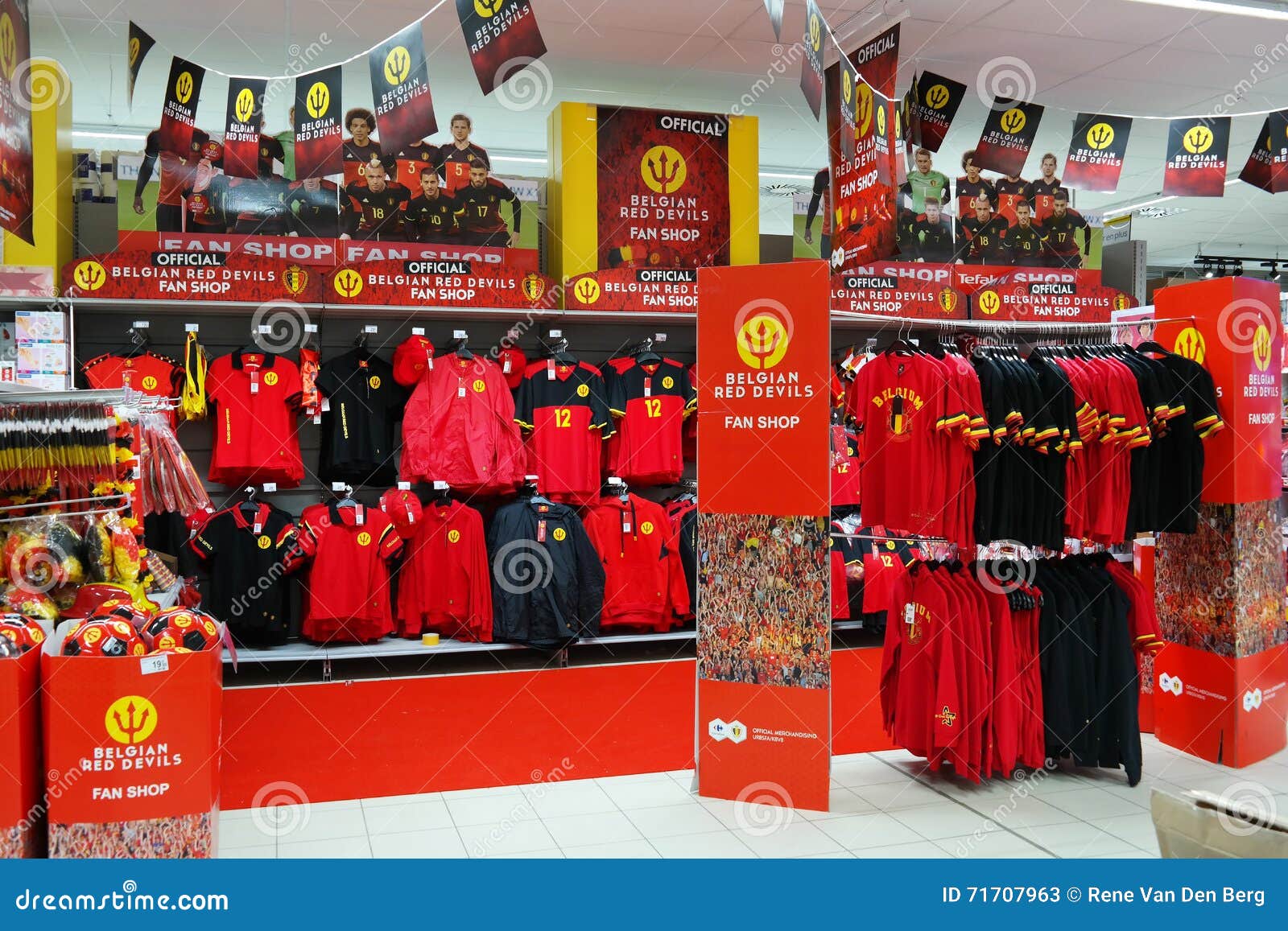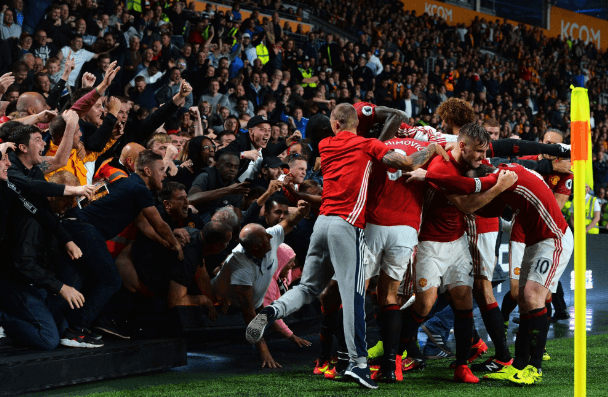“Football Fan Culture in Belgium
Related Articles Football Fan Culture in Belgium
Football Fan Culture in Belgium

Belgium, a small nation in the heart of Europe, boasts a rich and passionate football culture that extends far beyond the performances on the pitch. Football is deeply ingrained in the Belgian identity, acting as a social glue that binds communities together and ignites fervent local pride. From the historic rivalries between clubs to the unwavering support for the national team, the Red Devils, football fandom in Belgium is a vibrant tapestry woven with tradition, emotion, and an unyielding love for the beautiful game.
Historical Roots and Regional Variations
The roots of Belgian football fan culture can be traced back to the late 19th century, when the sport first gained popularity in the country. As football clubs began to emerge in cities and towns across Belgium, they quickly became focal points for local communities. These clubs provided a sense of belonging and identity, fostering intense rivalries that continue to shape the football landscape today.
One of the most notable aspects of Belgian football fan culture is its regional variations. Belgium is a country with distinct regional identities, and these differences are reflected in the way fans support their teams. In Flanders, the Dutch-speaking region of Belgium, football is often seen as a symbol of Flemish pride and identity. Clubs like Club Brugge and Anderlecht have large and passionate fan bases in Flanders, and their matches are often highly charged affairs.
In Wallonia, the French-speaking region of Belgium, football is also deeply ingrained in the local culture. Clubs like Standard Liège and Sporting Charleroi have strong followings in Wallonia, and their matches are known for their passionate atmosphere. Walloon fans are known for their vocal support of their teams, and they often create elaborate displays of tifos and banners to show their loyalty.
Club Rivalries: A Fixture of Belgian Football
Club rivalries are an integral part of Belgian football fan culture. These rivalries are often based on geographical proximity, historical grievances, or political differences. Some of the most intense rivalries in Belgian football include:
-
Anderlecht vs. Standard Liège: This is arguably the biggest rivalry in Belgian football, pitting the two most successful clubs in the country against each other. Matches between Anderlecht and Standard Liège are always highly anticipated and often marked by intense displays of passion from both sets of fans.
-
Club Brugge vs. Cercle Brugge: This is a local derby between the two clubs from the city of Bruges. The rivalry is particularly fierce because the two clubs share the same stadium, the Jan Breydel Stadium.

Antwerp vs. Beerschot: This is another local derby, this time between the two clubs from the city of Antwerp. The rivalry is steeped in history and tradition, and matches between Antwerp and Beerschot are always highly charged affairs.
-
Gent vs. Anderlecht: Although not a traditional derby based on geographical proximity, the matches between Gent and Anderlecht have grown into a significant rivalry in recent years due to their frequent clashes at the top of the league and in cup competitions.
The Red Devils: National Pride and Unity
While club rivalries are a defining feature of Belgian football fan culture, the national team, the Red Devils, also plays a crucial role in uniting the country. When the Red Devils are playing, regional differences are often put aside as fans from all over Belgium come together to support their national team.
The Red Devils have a large and passionate fan base, and their matches are always well-attended. Belgian fans are known for their enthusiastic support of the national team, and they often create a festive atmosphere at matches with their singing, chanting, and displays of national flags and colors.
The success of the Red Devils in recent years has further fueled the passion for football in Belgium. The team’s impressive performances in the 2014 and 2018 World Cups, as well as the 2016 European Championship, have captured the imagination of the Belgian public and inspired a new generation of football fans.
The Fan Experience: Atmosphere and Traditions
The matchday experience in Belgium is a unique and vibrant affair, characterized by passionate support, colorful displays, and a strong sense of community. Belgian football stadiums are known for their lively atmosphere, with fans creating a wall of noise to support their teams.
Tifos and banners are a common sight at Belgian football matches, with fans often spending hours preparing elaborate displays to show their loyalty and support. Chanting and singing are also an integral part of the fan experience, with fans often creating their own songs and chants to celebrate their teams.
Beyond the stadium, the matchday experience often extends to local pubs and bars, where fans gather before and after matches to socialize and discuss the game. These gatherings are an important part of the social fabric of Belgian football fan culture, providing a space for fans to connect with each other and share their passion for the sport.
Challenges and Evolution
Like football fan culture in many other countries, Belgian football fandom faces several challenges. One of the main challenges is the issue of hooliganism. While the vast majority of Belgian football fans are well-behaved, a small minority of individuals engage in violent or disruptive behavior. The Belgian authorities have taken steps to combat hooliganism, including increased security measures at stadiums and the implementation of banning orders.
Another challenge facing Belgian football fan culture is the increasing commercialization of the sport. As football has become more and more profitable, ticket prices have risen, and traditional fan culture has been threatened by corporate sponsorships and marketing campaigns. However, many Belgian football fans are determined to preserve the traditions and values of their fan culture, and they are actively working to resist the commercialization of the sport.
Despite these challenges, Belgian football fan culture continues to evolve and adapt. New fan groups are emerging, and fans are finding new ways to express their support for their teams. The use of social media has also played a role in shaping Belgian football fan culture, allowing fans to connect with each other and share their opinions and experiences.
The Future of Belgian Football Fan Culture
The future of Belgian football fan culture is likely to be shaped by a number of factors, including the performance of the national team, the development of club football, and the ongoing challenges of hooliganism and commercialization. However, one thing is certain: Belgian football fans will continue to play a vital role in shaping the landscape of the sport in their country.
With their passion, loyalty, and unwavering support, Belgian football fans are the heart and soul of the beautiful game in Belgium. They are the ones who create the atmosphere in the stadiums, who inspire the players on the pitch, and who keep the traditions of Belgian football alive. As long as there are football fans in Belgium, the sport will continue to thrive and evolve, enriching the social and cultural fabric of the nation.
In conclusion, football fan culture in Belgium is a complex and multifaceted phenomenon, shaped by history, regional identities, club rivalries, and national pride. It is a culture that is both passionate and vibrant, and one that plays a vital role in the social and cultural life of the country. Despite the challenges it faces, Belgian football fan culture is likely to remain a defining feature of the nation for many years to come.

